|
Books Should Be Free Loyal Books Free Public Domain Audiobooks & eBook Downloads |
|
|
Books Should Be Free Loyal Books Free Public Domain Audiobooks & eBook Downloads |
|
Non-fiction |
|---|
|
Book type:
Sort by:
View by:
|
By: Sir John Barrow (1764-1848) | |
|---|---|
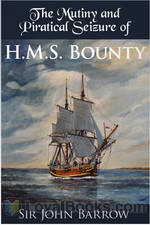 Eventful History of the Mutiny and Piratical Seizure of H.M.S. Bounty
Eventful History of the Mutiny and Piratical Seizure of H.M.S. Bounty
On December 31 1787, the HMS Bounty, a small sailing vessel embarked from Spithead Harbor, England bound for Tahiti. Her mission was sponsored by the Royal Society in London and aimed at picking up breadfruit plants and fruit from Tahiti and conveying them to the West Indies, where it was hoped they would take root and become a commercial crop. The Bounty was an old ship with a young captain and 46 young officers. The captain's cabin was converted into a potting shed for the expected breadfruit cargo... | |
By: Sir Percy Fitzpatrick (1862-1931) | |
|---|---|
 Jock of the Bushveld
Jock of the Bushveld
Jock of the Bushveld is a true story by South African author Sir Percy Fitzpatrick when he worked as a storeman, prospector's assistant, journalist and ox-wagon transport-rider. The book tells of Fitzpatrick's travels with his dog, Jock, during the 1880s. Jock was saved by Fitzpatrick from being drowned in a bucket for being the runt of the litter. Jock was very loyal towards Percy, and brave. Jock was an English Staffordshire Bull Terrier. | |
By: Sir Wilfred Grenfell (1865-1940) | |
|---|---|
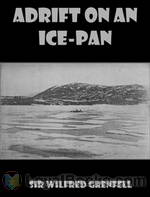 Adrift on an Ice-Pan
Adrift on an Ice-Pan
This autobiographical work describes the author’s harrowing experience caught on a small drifting piece of ice, while crossing a frozen bay by dog team on the Northern Peninsula of Newfoundland. | |
By: Sir William Osler (1849-1919) | |
|---|---|
 Alabama Student And Other Biographical Essays
Alabama Student And Other Biographical Essays
Here are thirteen biographical sketches of physicians penned by one of the founders of modern medicine, William Osler, published in 1908. "Sir William Osler, one of the best-loved and most influential teachers of his time, was born in Canada in 1849…. Wherever he worked his gifted and unique personality was a center of inspiration… one would like to see his honorable place as a man of letters more generally understood. His generous wisdom and infectious enthusiasm are delightfully expressed in his collected writings…... | |
By: Solon Robinson (1803-1880) | |
|---|---|
 Guano A Treatise of Practical Information for Farmers
Guano A Treatise of Practical Information for Farmers
| |
By: St. Benedict of Nursia (ca. 480-547) | |
|---|---|
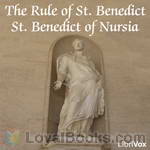 The Rule of St. Benedict
The Rule of St. Benedict
The Rule of Saint Benedict (Regula Benedicti) is a book of precepts written by St. Benedict of Nursia for monks living communally under the authority of an abbot. Since about the 7th century it has also been adopted by communities of women. During the 1500 years of its existence, it has become the leading guide in Western Christianity for monastic living in community. The spirit of St Benedict's Rule is summed up in the motto of the Benedictine Confederation: pax ("peace") and the traditional ora et labora ("pray and work").(Introduction from Wikipedia) | |
By: St. Catherine of Genoa (1447-1510) | |
|---|---|
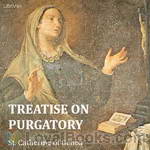 Treatise on Purgatory
Treatise on Purgatory
Saint Catherine of Genoa (Caterina Fieschi Adorno, born Genoa 1447 – 15 September 1510) is an Italian Roman Catholic saint and mystic, admired for her work among the sick and the poor. She was a member of the noble Fieschi family, and spent most of her life and her means serving the sick, especially during the plague which ravaged Genoa in 1497 and 1501. She died in that city in 1510.In 1551, 41 years after her death, a book about her life and teaching was published, entitled Libro de la vita mirabile et dottrina santa de la Beata Caterinetta de Genoa... | |
By: St. George Stock (b. 1850) | |
|---|---|
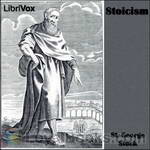 Stoicism
Stoicism
This short book is part of the Philosophies Ancient and Modern series, which attempts to make Western philosophy more accessible to the general public. In this volume, George Stock provides a concise primer on Stoicism, the ancient philosophy that maintained that the universe is governed entirely by fate, and that humans can achieve happiness only by cultivating a calm acceptance of the vicissitudes of life. Among the Stoics of the Greek and Roman world were its founder, Zeno, the former slave Epictetus, and the Roman emperor Marcus Aurelius... | |
By: St. George William Joseph Stock (1850-?) | |
|---|---|
 Guide to Stoicism
Guide to Stoicism
This book is a primer on the philosophy of stoicism, resurrected from its origins in Greek and Roman philosophy. The original philosophy was based on a reasoning process which it was assumed would lead to a virtuous life. Zeno, the founder of stoicism, did not begin expounding on its teachings until he was in his forties. He believed that the purpose of life was "to live consistently." Cleanthes, his disciple, added "with nature," so that the purpose of life became "to live consistently with nature." | |
By: St. Ignatius Loyola (1491-1553) | |
|---|---|
 The Autobiography of St. Ignatius
The Autobiography of St. Ignatius
This account of the life of St. Ignatius, dictated by himself to Father Gonzalez, is a most valuable record of the great Founder of the Society of Jesus. It, more than any other work, gives an insight into the spiritual life of St. Ignatius. Few works in ascetical literature, except the writings of St. Teresa and St. Augustine, impart such a knowledge of the soul.The saint in his narrative always refers to himself in the third person, and this mode of speech has here been retained. Many persons who have neither the time, nor, perhaps, the inclination, to read larger works, will read, we trust, with pleasure and profit this autobiography... | |
By: St. Ignatius of Antioch | |
|---|---|
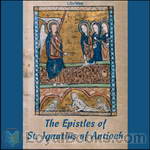 The Epistles of Ignatius
The Epistles of Ignatius
Ignatius of Antioch penned these letters to churches (Ephesians, Magnesians, Trallians, Romans, Philadelphians, and Smyrnaeans) and Polycarp on his way to martyrdom. Ignatius was an apologist for the Episcopal style of church government (as opposed to sole rule by a council of presbyters) which developed in the late first or early second century. Eager to die in imitation of his Savior, it was Ignatius who wrote this to the Roman church: “I am God’s wheat, and I am ground by the teeth of wild beasts that I may be found pure bread [of Christ].” | |
By: St. John Chrysostom (349-407) | |
|---|---|
 Commentary on Galatians
Commentary on Galatians
St. Chrysostom’s Commentary on the Epistle to the Galatians is continuous, according to chapter and verse, instead of being arranged in Homilies, with a moral or practical application at their close, as in his exposition of other Epistles. It was written in Antioch, as Montfaucon infers from a reference which the Author, makes upon Chap. i., ver. 16 to other of his writings, which certainly were written about the same time in that city. (Introduction from the preface by John Henry Newman) | |
By: St. Teresa of Avila (1515-1582) | |
|---|---|
 The Interior Castle
The Interior Castle
El Castillo Interior or Las Moradas (trans.:The Interior Castle or The Mansions) was written by Saint Teresa of Ávila in 1577. After being ordered to write her autobiographical La Vida de la Santa Madre Teresa de Jesús (The Life of S. Teresa of Jesus), Teresa was hesitant to begin writing again on her views of the perfection found in internal prayer. In the hands of the Inquisition at that time, her Life was commonly believed to be the weight in the scale of whether to call her experiences heretical or not... | |
 Book of the Foundations
Book of the Foundations
Essentially the sequel to The Life of St. Teresa, Teresa recounts the foundations of the Discalced Carmelite monasteries in Spain, both for men and women. This book tells of all the triumphs and troubles, and about the many people who helped her.(Introduction by Ann Boulais) | |
By: Stamp Act Congress of 1765 | |
|---|---|
 Declaration of Rights
Declaration of Rights
On June 8, 1765 James Otis, supported by the Massachusetts Assembly sent a letter to each colony calling for a general meeting of delegates. The meeting was to be held in New York City in October. Representatives from nine colonies met in New York. Though New Hampshire, Virginia, North Carolina and Georgia did not send delegates, the Assemblies of those missing colonies nonetheless agreed to support the works of the Congress. The meetings were held in Federal Hall in New York, and the delegates assembled on October 2... | |
By: Stanton H. King | |
|---|---|
 Dog-Watches at Sea
Dog-Watches at Sea
Stanton H. King was from Barbados and followed his brothers to sea at the age of twelve in 1880. He spent only twelve years at sea for reasons given in this book. Thereafter, he became associated with the Sailors’ Haven, Boston, Massachusetts and became its director. He was also a renowned Chantie singer and, in 1918, King’s Book Of Chanties was published. King views the sailing life from “before the mast”, that is, through the eyes of the common sailor. | |
By: Steele Rudd (1868-1935) | |
|---|---|
 Dad's Trip to Brisbane (from Our New Selection)
Dad's Trip to Brisbane (from Our New Selection)
Chapters XV through XIX of "Our New Selection" "The wheat was in, and Dad decided to take a trip to Brisbane. For seven or eight years he had been thinking of that trip, but something or other always came to prevent his going. According to Dad himself, the farm would suffer if he went away for a month; there would be no one to look after it, no one to manage. According to us there would be no one to look on while the cows were being milked; no one to stand in the paddock all day while the hay was... | |
 Dave Brings Home A Wife (dramatic reading)
Dave Brings Home A Wife (dramatic reading)
This is a self-contained story-arc over eight chapters from the pages of Steele Rudd's book "Back At Our Selection". The Synopsis: After being a shy bachelor for a number of years, Dave has finally got married. To a "Girl from Town" named "Lily White". When she first arrives at "Ruddville", she and Dave's sister Sarah get on wonderfully. But after some months, friction between the two young woman sets in, and Dave and Lily seek to have a separate house of their own on the extensive Rudd property... | |
By: Stephen H. (Stephen Haskins) Carpenter (1831-1878) | |
|---|---|
 The Philosophy of Evolution Together With a Preliminary Essay on The Metaphysical Basis of Science
The Philosophy of Evolution Together With a Preliminary Essay on The Metaphysical Basis of Science
| |
By: Stephen Leacock (1869-1944) | |
|---|---|
 Chronicles of Canada -- Dawn of Canadian History: Aboriginal Canada
Chronicles of Canada -- Dawn of Canadian History: Aboriginal Canada
Most readers of Stephen Leacock's works are familiar with his witty and humorous writings, but few may be aware that he was also a gifted teacher, political ideologue, economist and fiction writer. Though he wrote six books on Canadian history, none of them attained the status of a standard text on the subject and were regarded more as opinion pieces without much academic foundation. Yet, the Chronicles of Canada series by Stephen Leacock remains an interesting and entertaining read. In this volume, Dawn of Canadian History: Aboriginal Canada, which is part of a thirty-two book series of short and simple essays, Leacock explores the little known origins of Canada's past... | |
 The Unsolved Riddle of Social Justice
The Unsolved Riddle of Social Justice
This lengthy political essay by noted Canadian humourist Stephen Leacock was written while he was professor of political economy at McGill University. He argues for a middle ground between individualism/capitalism and pure socialism. Listeners in the early 21st century may find this 90-year old essay oddly topical. | |
 My Discovery of England
My Discovery of England
"In the course of time a very considerable public feeling was aroused in the United States and Canada over this state of affairs. The lack of reciprocity in it seemed unfair. It was felt (or at least I felt) that the time had come when some one ought to go over and take some impressions off England. The choice of such a person (my choice) fell upon myself. By an arrangement with the Geographical Society of America, acting in conjunction with the Royal Geographical Society of England (to both of whom I communicated my proposal), I went at my own expense."And from thence follow the impressions of Canadian political economist and humourist, Stephen Leacock, after a lecturing visit to England. | |
By: Steve Solomon | |
|---|---|
 Gardening Without Irrigation: or without much, anyway
Gardening Without Irrigation: or without much, anyway
Gardening expert Steve Solomon has written extensively on gardening techniques for the home gardener. Water conservation is the focus of this work, along with more information on how to have the healthiest plants in your garden through “fertigation”, appropriate plant rotation, and soil preparation. | |
 Organic Gardener's Composting
Organic Gardener's Composting
The art and science of composting is presented in a humorous and readable manner from the basic elements to the in-depth science. An entire chapter is devoted to composting with red worms (vermiculture), and detailed information is provided on building different types of composting units. The history of the organic gardening movement is included as well as an annotated bibliography of works on the subjects of composting and food gardening. | |
By: Stewart Edward White (1873-1946) | |
|---|---|
 Camp and Trail
Camp and Trail
| |
By: Susan Coolidge (1835-1905) | |
|---|---|
 What Katy Did at School
What Katy Did at School
The continuing story of Katy Carr, recounting the time she spent at boarding school with her sister Clover. | |
By: Susan Edmonstoune Ferrier | |
|---|---|
 Marriage, Volume 1
Marriage, Volume 1
“Love!–A word by superstition thought a God; by use turned to an humour; by self-will made a flattering madness.” – Alexander and Campaspe. Lady Juliana, the indulged and coddled seventeen (”And a half, papa”) year old daughter of the Earl of Cortland, is betrothed by her father to a wealthy old Duke who can give her every luxury. She instead runs away and marries her very handsome but penniless lover. Very soon, they are forced to travel to Scotland to live with his quirky family in a rundown “castle” in the barren wilderness. Can this marriage survive?(Summary by P.Cunningham) | |
 Inheritance
Inheritance
"As the noblest attribute of man, family pride had been cherished time immemorial by the noble race of Rossville. Deep and incurable, therefore, was the wound inflicted on all its members by the marriage of the honorable Thomas St. Clair, the youngest son of the Earl of Rossville, with the humble Miss Sarah Black, a beautiful girl of obscure origin and no fortune." And so the stage is set for our plot, which focuses on the implications and complications of the return from France to Scotland of the Rossville widow and her daughter-heiress Gertrude, who must suffer the onslaught of relations and suitors as well as a mysterious, threatening stranger who plagues her mother... | |
By: Susanna Moodie (1803-1885) | |
|---|---|
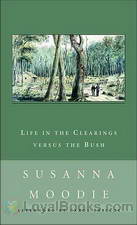 Life in the Clearings
Life in the Clearings
If you've read Margaret Atwood's Alias Grace, the historical fiction novel that describes a gruesome double murder in Canada in 1843, you would be interested to know the sources that were used by Atwood during her research. Life in the Clearings by Susanna Moodie was one such reference book in which the author, Susanna Moodie recounts her meeting with the infamous murderess Grace Marks, a young house help who was convicted to life imprisonment for her role in the slaying of her employers. Susanna Moodie was an Englishwoman born in Suffolk... | |
 Roughing It in the Bush
Roughing It in the Bush
'Roughing It In the Bush' is Susanna Moodie's account of how she coped with the harshness of life in the woods of Upper Canada, as an Englishwoman homesteading abroad. Her narrative was constructed partly as a response to the glowing falsehoods European land-agents were circulating about life in the New World. Her chronicle is frank and humorous, and was a popular sensation at the time of its publication in 1852. | |
By: Sutton and Sons | |
|---|---|
 The Culture of Vegetables and Flowers From Seeds and Roots 16th Edition
The Culture of Vegetables and Flowers From Seeds and Roots 16th Edition
| |
By: Sylvester Mowry (1830-1871) | |
|---|---|
 Memoir of the Proposed Territory of Arizona
Memoir of the Proposed Territory of Arizona
| |
By: T. D. Bonner (1810-1883) | |
|---|---|
 Life and Adventures of James P. Beckwourth
Life and Adventures of James P. Beckwourth
Buried amid the sublime passes of the Sierra Nevada are old men, who, when children, strayed away from our crowded settlements, and, gradually moving farther and farther from civilization, have in time become domiciliated among the wild beasts and wilder savages — have lived scores of years whetting their intellects in the constant struggle for self-preservation; whose only pleasurable excitement was found in facing danger; whose only repose was to recuperate, preparatory to participating in new and thrilling adventures... | |
By: T. F. Thiselton Dyer (1848-1923) | |
|---|---|
 Strange Pages from Family Papers
Strange Pages from Family Papers
“Among other qualities which have been supposed to belong to a dead man’s hand, are its medicinal virtues, in connection with which may be mentioned the famous ‘dead hand,’ which was, in years past, kept at Bryn Hall, Lancashire… Thus the case is related of a woman who, attacked with the smallpox, had this dead hand in bed with her every night for six weeks, and of a poor lad living near Manchester who was touched with it for the cure of scrofulous sores.” Though not all chapters have such gruesome subjects as The Dead Hand, all are full of a curious mixture of superstition and local history that will delight and amuse the modern listener. | |
By: T. H. Pardo de Tavera (1857-1925) | |
|---|---|
 The Legacy of Ignorantism
The Legacy of Ignorantism
| |
By: T. R. (Thomas Radford) Agg (1878-1947) | |
|---|---|
 American Rural Highways
American Rural Highways
| |
By: Tacitus, Publius Cornelius (c. 56-117) | |
|---|---|
 The Works of Tacitus Vol. I, edited, translated, and with essays by Thomas Gordon
The Works of Tacitus Vol. I, edited, translated, and with essays by Thomas Gordon
The historical works of Tacitus are a history of the period from A.D. 14 to 96 in thirty volumes. Although many of the works were lost (only books 1-5 of the Histories and 1-6 and 11-16 of the Annals survive), enough remains to provide a good sense of Tacitus’s political and moral philosophy. Tacitus recognized the necessity for strong rulers but argued that more should be done to manage the succession of power and allow for the ascension of talent. He asserted that it was the dynastic ambitions of Rome’s many emperors that caused the decline of moral and political life and precluded the possibility of recruiting leaders of real ability... | |
By: Talbot Hughes (1869-1942) | |
|---|---|
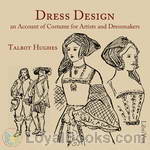 Dress Design: An Account of Costume for Artists and Dressmakers
Dress Design: An Account of Costume for Artists and Dressmakers
Explanations of Western European trends in men and women's fashion from prehistoric times to the Victorian Era. | |
By: Thames Williamson | |
|---|---|
 Problems in American Democracy
Problems in American Democracy
Problems in American Democracy is a very detailed, specific explanation of some of the underlying and surface problems of a democracy system of government, particularly of the American form of democracy. Though lengthy, it is a great read for people who want to learn more about different types of government and the foundations of our own government in the United States of America. | |
By: The 9/11 Commission | |
|---|---|
 The 9/11 Commission Report
The 9/11 Commission Report
Taking the reader back to the horror and devastation of September 11, 2001, the 9/11 Commission Report by the 9/11 Commission, is the official report that presents the final findings of the committee Krean Hamilton Commission (better known as the 9/11 Commission.) The report reveals not just the events that happened on that fateful day, but also describes the circumstances that led up to it. It analyzes the role of several government agencies in the drama and also pinpoints the lacunae in the system that allowed such events to occur... | |
By: The Securities and Exchange Commission | |
|---|---|
 A Plain English Handbook: How to create clear SEC disclosure documents
A Plain English Handbook: How to create clear SEC disclosure documents
The Plain Writing Act of 2010 is intended to make it easy for the public to understand government documents. The SEC, like other federal agencies, must write documents in plain writing, defined under the Act as writing that is "clear, concise, well-organized, and follows other best practices appropriate to the subject or field or audience." Starting in October 2011, the Act requires us to write new and substantially revised documents in plain language using the Federal Plain Language Guidelines... | |
By: the Three Initiates (1908) | |
|---|---|
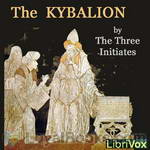 The Kybalion
The Kybalion
The Kybalion: Hermetic Philosophy is a 1908 book claiming to be the essence of the teachings of Hermes Trismegistus, published anonymously by a group or person under the pseudonym of “the Three Initiates”. (Introduction by Wikipedia) | |
By: The Three Initiates | |
|---|---|
 Kybalion (version 2)
Kybalion (version 2)
The Kybalion: Hermetic Philosophy is a 1908 book claiming to be the essence of the teachings of Hermes Trismegistus, published anonymously by a group or person under the pseudonym of "the Three Initiates". The Kybalion was first published in 1908 by the Yogi Publication Society and is now in the public domain, and can be found on the internet. The book purports to be based upon ancient Hermeticism, though many of its ideas are relatively modern concepts arising from the New Thought movement. The book early on makes the claim that it makes its appearance in one's life when the time is appropriate and includes variations of material found in the book of Proverbs... | |
By: The Venerable Bede (673-735) | |
|---|---|
 Ecclesiastical History of England
Ecclesiastical History of England
Bede's Ecclesiastical History of England is a work in Latin by Bede on the history of the Christian Churches in England, and of England generally; its main focus is on the conflict between Roman and Celtic Christianity. It is considered to be one of the most important original references on Anglo-Saxon history. It is believed to have been completed in 731, when Bede was approximately 59 years old. Divided into five books, it covers the history of England, ecclesiastical and political, from the time of Julius Caesar to the date of its completion (731)... | |
By: Theo. Stephenson Browne | |
|---|---|
 In the Riding-School; Chats with Esmeralda
In the Riding-School; Chats with Esmeralda
| |
By: Theodor Herzl (1860-1904) | |
|---|---|
 A Jewish State
A Jewish State
Read in English, this is a pivotal document in the history of Zionism and the State of Israel. Herzl designed this work to elevate the discussion of "the Jewish Question" so it would "no longer take the form of violent abuse or sentimental vindication but of a debate, practical, large, earnest, and political." While few of Herzl's proposals were actually carried out, the importance of A JEWISH STATE was in the groundswell of support for a Jewish homeland engendered by its solutions to the practical problems of establishing a new state... | |
By: Theodore Arnold Haultain (1857-1941) | |
|---|---|
 Hints for Lovers
Hints for Lovers
“Hints for Lovers” is a thorough analysis of relationships between men and women, about everything that lovers should know, and delves deep into the psychology of men and women, and the philosophy of courtship, engagement, kissing, making love, marriage, etc, in a light-hearted tone, with refreshing humor. | |
By: Theodore Roosevelt | |
|---|---|
 Theodore Roosevelt: An Autobiography
Theodore Roosevelt: An Autobiography
In his vital, illustrative and dynamic autobiography, Theodore Roosevelt let us into the life that formed one of the greatest and outspoken presidents in American history. Not only are we privy to the formation of his political ideals, but also to his love of the frontier and the great outdoors. | |
 Through the Brazilian Wilderness
Through the Brazilian Wilderness
Roosevelt’s popular book Through the Brazilian Wilderness describes his expedition into the Brazilian jungle in 1913 as a member of the Roosevelt-Rondon Scientific Expedition co-named after its leader, Brazilian explorer Cândido Rondon. The book describes all of the scientific discovery, scenic tropical vistas and exotic flora, fauna and wild life experienced on the expedition. One goal of the expedition was to find the headwaters of the Rio da Duvida, the River of Doubt, and trace it north to the Madeira and thence to the Amazon River... | |
 The Naval War of 1812
The Naval War of 1812
Somewhat detailed history of naval engagements between the United States and England during the War of 1812, from a decidely American perspective. Completed by the author as a young man at age 24. After 120 years, it remains a standard study of the war. | |
 Strenuous Life: Essays and Addresses of Theodore Roosevelt, The
Strenuous Life: Essays and Addresses of Theodore Roosevelt, The
This book is a collection of Theodore Roosevelt’s published commentaries and public addresses on the general theme of the requirements for individual and collective success in the personal, civic, political, and social arenas. (Introduction by Bob Neufeld) | |
 Hunting the Grisly and Other Sketches
Hunting the Grisly and Other Sketches
| |
By: Théodule Ribot (1839-1916) | |
|---|---|
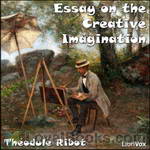 Essay on the Creative Imagination
Essay on the Creative Imagination
“It is quite generally recognized that psychology has remained in the semi-mythological, semi-scholastic period longer than most attempts at scientific formulization. For a long time it has been the “spook science” per se, and the imagination, now analyzed by M. Ribot in such a masterly manner, has been one of the most persistent, apparently real, though very indefinite, of psychological spooks. Whereas people have been accustomed to speak of the imagination as an entity sui generis, as a... | |
By: Theron Q. Dumont (1862-1932) | |
|---|---|
 The Power of Concentration
The Power of Concentration
Though he wrote more than 100 books during his lifetime, Theron Q Dumont is largely a forgotten entity today. In fact, Theron Q Dumont is not even his real name. It is a pen-name adopted by William Walker Atkinson, an American polymath, who began his career as a grocer's assistant in nineteenth century Baltimore, studied law and went on to amass fame and fortune as a successful legal luminary. However, disaster struck when he suffered a nervous breakdown due to over strain and he lost everything that he had earned... | |
By: Thomas a Kempis (1380?-1471) | |
|---|---|
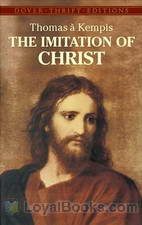 The Imitation of Christ
The Imitation of Christ
The Imitation of Christ is widely considered one of the greatest manuals of devotion in Christianity. The life of Christ is presented as the highest study possible to a mortal, as Jesus’ teachings far excel all the teachings of the saints. The book gives counsel to read the scriptures, statements about the uses of adversity, advice for submission to authority, warnings against temptation and how to resist it, reflections about death and the judgment, meditations upon the oblation of Christ, and admonitions to flee the vanities of the world. A recording of a Dutch translation of this work is also available (Thomas a Kempis was Dutch but wrote in Latin of course). | |
By: Thomas Anderson (1819-1874) | |
|---|---|
 Elements of Agricultural Chemistry
Elements of Agricultural Chemistry
| |
By: Thomas Babington Macaulay (1800-1859) | |
|---|---|
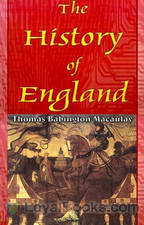 The History of England, from the Accession of James the Second
The History of England, from the Accession of James the Second
Hailed more as a literary masterpiece than an accurate account of historical facts, The History of England from the Accession of James the Second by Thomas Babington Macaulay is an admirable mix of fact and fiction. Modern day readers may find much that is offensive and insensitive in this five volume work which covers a particular period in the long and eventful history of Britain. However, it is certainly a book that leads the reader on to further research into the events and people mentioned... | |
 History of England, from the Accession of James II - (Volume 4, Chapter 21)
History of England, from the Accession of James II - (Volume 4, Chapter 21)
This is volume 4 chapter 21 of a series of books written by the Baron Macaulay (1800-1859) in the 19th century. It starts with a brief resume of the history of England up until the Stuart kings and then starts to delve into a little more detail. Macaulay is primarily fascinated by ending of any claim to divine right of kings and the growing role of Parliament in the governing of the country. He sees the accession of William and Mary (Dutch, Protestant royalty) to the British throne as a key moment in the history of the British Isles. This is a book delightful for the literary gifts of the author and intriguing for his view of 19th century English and world politics.(Jim Mowatt) | |
By: Thomas Barker (fl. 1651) | |
|---|---|
 The Art of Angling Wherein are discovered many rare secrets, very necessary to be knowne by all that delight in that recreation
The Art of Angling Wherein are discovered many rare secrets, very necessary to be knowne by all that delight in that recreation
| |
By: Thomas Barlow Wood (1869-1929) | |
|---|---|
 Story of a Loaf of Bread
Story of a Loaf of Bread
According to the author in the preface, he has "ventured to write this little book with some diffidence, for it deals with farming, milling and baking, subjects on which everyone has his own opinion." The earlier chapters give a brief sketch of the growing and marketing of wheat, followed by chapters on various aspects that impact the quality of wheat, the baking process and the characteristic of the final product, bread. The author aimed at making the reader realise that the farmer’s share in the production of the staple food of the people is by no means the simple affair it appears to be. - Summary by Leni | |